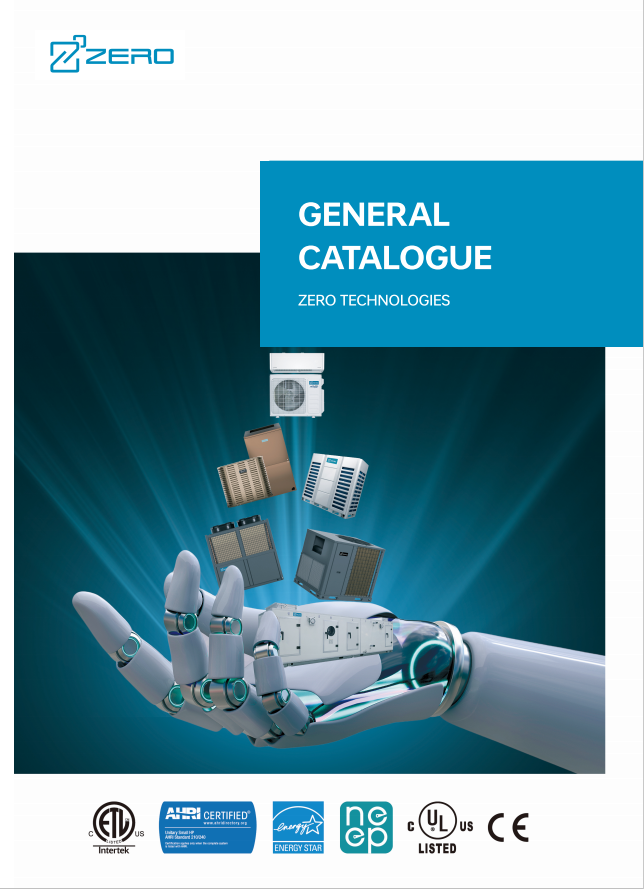Starting an HVAC business is an exciting venture, but it requires careful planning to navigate licensing, equipment, marketing, and more. Whether you’re a seasoned technician or an entrepreneur breaking into the industry, this checklist will help you lay a solid foundation for your HVAC business.
1. Understand the HVAC Industry
- Research Market Demand: Analyze local competition and identify gaps (e.g., residential vs. commercial services, eco-friendly solutions).
- Trends to Watch: Smart HVAC systems, energy efficiency upgrades, and indoor air quality services.
- Services to Offer: Installation, maintenance, repairs, emergency services, and duct cleaning.
2. Legal Requirements
- Choose a Business Structure: LLC, sole proprietorship, or corporation—consult a legal advisor for tax and liability benefits.
- Licensing**: Obtain state/local HVAC contractor licenses and EPA 608 certification (mandatory for handling refrigerants).
- Insurance**: Secure general liability, workers’ compensation, and commercial auto insurance. Consider bonding for credibility.
- Permits & Compliance: Check zoning laws for your workspace and adhere to local building codes.
3. Create a Business Plan
- Mission Statement: Define your company’s purpose and values.
- Market Analysis: Identify target customers and competitors.
- Financial Plan: Outline startup costs (equipment, vehicles, marketing), pricing strategy, and 3–5-year projections.
- Funding: Explore small business loans, investors, or personal savings.
4. Invest in Equipment & Tools
- Essential Tools: Gauges, vacuum pumps, recovery machines, and diagnostic tools.
- Vehicles: Reliable trucks branded with your logo.
- Software: HVAC-specific tools for invoicing, scheduling (e.g., ServiceTitan), and accounting (e.g., QuickBooks).
- Safety Gear: Provide PPE like gloves, goggles, and respirators.
5. Build Your Team
- Hire Certified Technicians: Ensure they have EPA certifications and experience.
- Training: Offer ongoing education on new technologies and safety protocols.
- Background Checks: Build trust by vetting employees thoroughly.
6. Develop Your Brand & Marketing Strategy
- Brand Identity: Design a professional logo, website, and uniforms.
- Online Presence: Optimize your website for SEO, run Google Ads, and engage on social media (Facebook, Instagram).
- Local Marketing: Distribute flyers, partner with realtors/contractors, and list your business on Google My Business.
- Customer Retention: Offer maintenance contracts, request reviews, and follow up post-service.
7. Set Pricing & Financial Systems
- Competitive Pricing: Research local rates; consider flat fees for common services.
- Payment Options: Accept credit cards and offer financing for larger projects.
- Accounting: Track expenses, invoices, and taxes with dedicated software.
8. Prepare for Growth
- Monitor Performance: Use customer feedback to refine services.
- Expand Services: Add ductless mini-splits, solar HVAC, or air purification as demand grows.
- Reinvest Profits: Upgrade equipment, hire more staff, or expand your service area.
- Monitor Performance:
Continuously track your business’s performance using key performance indicators (KPIs) like customer satisfaction, revenue growth, repeat business, and employee productivity. By collecting and analyzing this data, you can make data-driven decisions that help optimize your service offerings and marketing strategies.Additionally, ask for customer feedback regularly to gauge satisfaction and identify areas where you can improve. This will allow you to fine-tune your services and develop stronger relationships with your clients. - Expand Services:
As demand for HVAC services grows, you may find it beneficial to expand the services you offer. This could include:- Ductless Mini-Splits: As an energy-efficient alternative to traditional HVAC systems, ductless mini-split systems are increasingly popular for residential and commercial clients.
- Solar HVAC Systems: Renewable energy solutions like solar-powered HVAC systems are becoming more common as consumers look for ways to reduce their energy bills and carbon footprints.
- Air Purification Systems: The growing awareness of air quality, especially in the wake of the COVID-19 pandemic, presents opportunities to offer additional services such as air filtration and UV-light purification systems.
Adding new services not only helps meet the evolving needs of your customers but also provides a new revenue stream and sets you apart from competitors.
- Reinvest Profits:
As your HVAC business grows, it’s important to reinvest profits back into the business to fuel continued expansion. Whether it’s upgrading equipment, purchasing additional vehicles, hiring more staff, or expanding into new territories, strategic reinvestment can position your business for sustainable growth.Keep an eye on emerging technologies and industry developments. For instance, offering smart home integration and the latest HVAC control technologies could keep you ahead of competitors who aren’t offering such advanced services. - Build Stronger Partnerships:
Establishing solid relationships with suppliers, manufacturers, and other professionals in the construction and real estate industries can be invaluable. Consider offering special deals or incentives to real estate agents, property managers, or home builders to ensure consistent referral business. Strong partnerships can also provide access to exclusive deals on equipment and materials.
9. Streamline Operations with Technology
As your HVAC business grows, it will become more challenging to keep track of everything manually. Leveraging technology can help automate tasks, improve efficiency, and enhance customer experience. Here are some technologies to consider:
- Service Management Software:
Software tools like ServiceTitan, Jobber, and Housecall Pro can help streamline your operations by automating scheduling, invoicing, dispatching, and customer relationship management (CRM). These tools allow you to manage multiple technicians and service calls efficiently, improving your ability to scale. - Mobile Apps:
Ensure your technicians have access to mobile apps that can update service schedules, track inventory, log job details, and even collect payments on-site. This reduces the need for paperwork and ensures better accuracy in job tracking. - Cloud-Based Accounting:
Cloud accounting software like QuickBooks Online or Xero can help keep your financial records up to date in real-time, allowing for more accurate forecasting, tax filing, and expense management. Many of these tools integrate with service management software for seamless workflow. - Customer Communication Tools:
Use automated text messages, emails, or reminders to follow up with customers about maintenance schedules or upcoming service appointments. This can reduce missed appointments and ensure a higher rate of customer retention.
10. Focus on Customer Satisfaction
Customer satisfaction is at the heart of any successful HVAC business. Satisfied clients not only return for repeat business but are more likely to refer you to others, helping you grow organically.
- Customer-Centric Approach:
Focus on building long-term relationships with your clients. Ensure that you provide exceptional customer service, from your first interaction through post-service follow-ups. Being prompt, courteous, and transparent can set you apart from competitors and help build trust with your clients. - Offer Maintenance Contracts:
Regular maintenance contracts are a great way to ensure consistent revenue while providing peace of mind to customers. Offer tailored packages based on the size and type of the HVAC system, and include services like annual inspections, cleaning, and priority scheduling for emergency repairs. - Encourage Reviews and Referrals:
After every successful job, ask clients to leave a review on Google, Yelp, or other local review sites. Reviews are vital for building your business’s reputation, especially for local search engine optimization (SEO). Offering small incentives for referrals, such as discounts or free services, can also help generate more business from satisfied customers. - Provide Transparency and Education:
Customers appreciate being informed about their HVAC systems. Use your website, social media, or even direct communication to educate clients on how to care for their systems and the importance of regular maintenance. When you are transparent about pricing, processes, and timeframes, clients are more likely to trust your expertise.
11. Stay Compliant with Industry Regulations
As you scale your business, staying compliant with all regulations is critical to avoid costly fines or penalties.
- Stay Current with Certifications:
Keep your certifications, such as the EPA 608, current, and ensure your technicians renew theirs as required. Some states also require specific continuing education for HVAC contractors, so be aware of what is required in your area. - Stay Updated on Local Codes:
Building codes and environmental regulations are always evolving. It’s crucial to stay informed about any changes in local codes that may impact your installations or repairs. Not complying with local laws could lead to fines or force you to redo work at your own expense. - Safety Regulations:
Employee and customer safety should always be a priority. Regularly review and update your safety protocols, and ensure that all technicians are trained in proper safety procedures. This reduces the risk of accidents and ensures that your business remains reputable and trustworthy.
Starting an HVAC business is no small feat, but with thorough preparation, you’ll position yourself for long-term success. Stay adaptable, prioritize customer satisfaction, and keep learning as technology evolves. you’ve successfully launched your HVAC business, it’s time to think about growth and scalability. As your business gains momentum, preparing for expansion will ensure you can meet increasing demand and keep your operations running smoothly.
Ready to turn up the heat on your entrepreneurial journey? Let’s get started!
Final Checklist Summary
✅ Research local market and competition
✅ Secure licenses, insurance, and certifications
✅ Draft a detailed business plan
✅ Purchase tools, vehicles, and software
✅ Hire and train qualified technicians
✅ Launch branding and marketing campaigns
✅ Set up financial management systems
✅ Plan for scalability and industry trends





